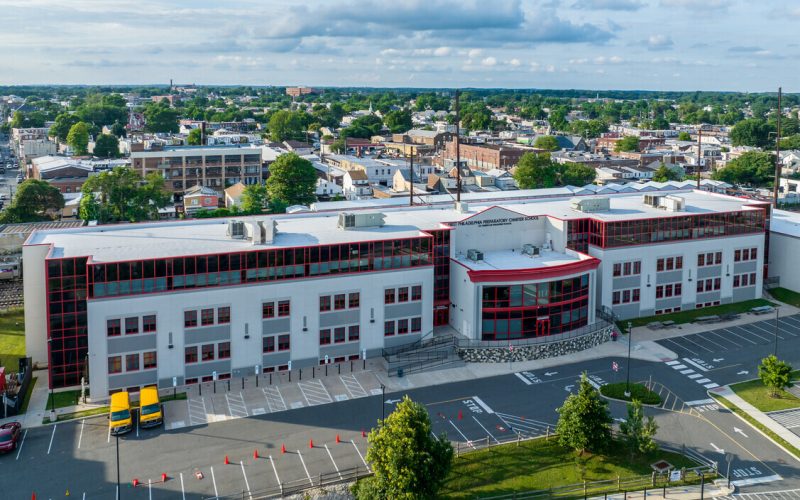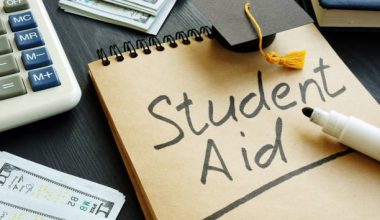So, you’re considering applying to First Philadelphia Charter School in 2024? Well, it’s important to make an informed decision before you apply. In this article, we’ll give you the lowdown on what to expect and what to consider before you make your move.
First off, it’s important to understand the school’s philosophy and curriculum. The school emphasizes academic excellence, character development, and a well-rounded education, but it’s also important to consider if their teaching methods align with your child’s learning style.
In this article, we’ve put together the information you need before applying to the first Philadelphia Charter School in 2024.
Table of Contents
- About First Philadelphia Charter School
- Admission Process at First Philadelphia Charter School
- Philadelphia Preparatory Charter School Overview
- First Philadelphia Charter School Grades
- Charter Schools Curriculum and Instructions
- Student Demographics
- First Philadelphia Preparatory Charter School Support Service
- Faculty and Staff at First Philadelphia Charter School
- Charter School Culture and Community
- Teachers Required Educational Qualifications
- Charter Schools Teachers Salary
- The Involvement of Parents in a Charter School
- First Philadelphia Charter School Basketball
- FAQs
- Conclusion
- References
- Recommended Posts
About First Philadelphia Charter School
In the basement of a synagogue, First Philadelphia Preparatory Charter School began operations in September 2002. In August 2004, the school moved into a brand-new, cutting-edge building at 4300 Tacony Street, where it is now.
Had more classrooms, a 700-seat theater with a mezzanine level, a full stage with an orchestra pit, and a specially designed sound and lighting system, all added to the facility in 2009.
There was increased enrollment, First Philadelphia was given extra seats following a successful charter renewal in 2012. The First Philadelphia expanded its K-8 divisions and began accepting high school students.
A new building was constructed on the main campus in February 2015. With this addition, K–12 was combined into one.
The school First Philadelphia is currently home to about 1900 students. The first graduating class from First Philadelphia High School was the class of 2017.
See: Buffalo United Charter School: What to Know Before Applying in 2024
Grades And Programs Offered: First Philadelphia Charter School
Education District. Charter school First Philadelphia Preparatory.
Grades: K–12
The ratio of 1:10 for teachers to students; type: charter.
What are the company’s current programs, how are they evaluated, and who do they benefit?
To create a school where kids care about one another and learn, we worked with the Developmental Studies Center (DSC) of Oakland, California.
The Philadelphia Orchestra, the Boys & Girls Clubs of Philadelphia, The Frankford Group Ministry, The Center for Literacy, Education Children for Parenting, Fellowship Farm, Philadelphia Reads, WHYY’s Ready to Learn, and Aid for Friends are a few of our other partnerships for outstanding programs.
Why You Should Attend First Philadelphia Charter School
A well-rounded literacy-based education is offered by First Philadelphia, helping to develop lifelong learners and leaders in the international community.
All K 12 grades are now served by the extensive arts and music program that First Philadelphia provides.
The school is housed in brand-new, cutting-edge educational buildings that include music and art classrooms, scientific labs, a gymnasium, and a theater.
Starting in kindergarten, First Philadelphia offers a program that emphasizes literacy.
First Philadelphia Charter School Accreditation & Honors
It was revealed by the Center for Character Education Partnership that the First Philadelphia Preparatory Charter School received national recognition in 2009 and 2010. A school that has won several awards for its innovative methods.
The First Philadelphia Preparatory Charter School was admitted to the “No Excuses University” network on June 8, 2008.
The American Paradigm Schools was chosen as a 2011 Pennsylvania School District of Character by the Center for Leadership and Ethics.
Admission Process at First Philadelphia Charter School
If there are more applicants than available spots, then students will be chosen by a public lottery. Applications for siblings must be submitted online by the parents. For kindergarten through grade 12, First Philadelphia Preparatory Charter School is now accepting applications.
According to our charter agreement with the Philadelphia School District, we must give priority admission to kids who live in the following schools’ catchment areas: K–8 catchment area: E: John Marshall, Stearne, Carnell, and-Catchery for grades 9 through 12: Fels.
Application Process & Procedure
On September 23, the application period for September 2024 will begin.
On September 23, 2024, the enrollment period for the 2024–25 academic year will begin.
September 23, 2024, to January 23, 2025, will be the application period.
- Date of the Common Lottery: February 8, 2024
- Standard Notification Date: February 10, 2024
- Widespread Acceptance Date: February 24, 2024
Philadelphia Preparatory Charter School Overview
Philadelphia, Pennsylvania’s First Philadelphia Preparatory Charter School is a charter school situated in a big metropolis.
The First Philadelphia Preparatory Charter School has 1,852 students and offers K–12 education. 13% of students at First Philadelphia Preparatory Charter School achieved math proficiency at or above the proficient level, and 35% achieved reading proficiency at or above the proficient level.
- The district-wide average for the student-teacher ratio is 20, which is 20.
- There are 50% female students and 50% male pupils in the student body.
The school only accepts kids who are challenged economically. There are six full-time school counselors and 94 equivalent full-time teachers.
First Philadelphia Charter School
Building A, Elementary School (K-3) 4300 Tacony Street, Philadelphia, Pennsylvania 19124 (215-743-3100, Fax: 215-743-9877).
Building B, Middle School Campus (4-6), 4300 Tacony Street, Philadelphia, Pennsylvania 19124
P: (215) 883-4080 | F: (215) 883-4079
Building A, High School Campus (7-12), 4300 Tacony Street, Philadelphia, Pennsylvania 19124 (Phone: (215) 883-4075; Fax: (215) 883-4076
First Philadelphia Charter School Grades
Grades K-12
STEAM Main Focus
STEAM focuses on Science, Technology, Engineering, the Arts, and Mathematics as entry points for student inquiry, discussion, and critical thinking, is STEAM Education method of teaching.
The STEAM equips instructors with the tools to implement project-based learning that integrates all five disciplines and promotes a welcoming learning environment where all students can participate and contribute.
As opposed to traditional models of instruction, STEAM educators integrate the disciplines, taking advantage of the connections between math and science content and the modeling process, for instance, to obfuscate the distinctions between modeling methods and scientific/mathematical thinking.
Also, see: Brooklyn Prospect Charter School: What To Know Before Applying In 2024
The Importance of STEAM in Today’s Education System
In the modern world, preparing students for success in the future entails exposing them to different subjects holistically to foster their ability to think critically.
Author Jeevan Vasagar claims in a Financial Times piece that “education is under pressure to respond to a changing world.” The capacity to tackle fresh challenges has grown more and more important when repetitive duties are eliminated by technology and outsourcing.
A STEAM framework not only teaches kids how to think critically, solve problems creatively, and apply their creativity, but it also equips them to work in industries.
According to a survey from the U.S. Bureau of Labor Statistics, STEM and STEAM-related employment will rise by 8% between now and 2029, compared to non-STEM occupations, which will grow by 3.4%.
Additionally, it shows that STEM/STEAM employment pays an average of $86,980 a year, compared to a total of $39,810 for all occupations.
The skills students acquire from a STEAM education can be applied to practically any career, even if they decide not to pursue a career in a STEM/STEAM field.
Charter Schools Curriculum and Instructions
Families pick charter schools for the creative curriculum, specialized care, and encouraging atmosphere where students can achieve their full potential.
With online, hybrid, and in-classroom mental health modules from BASE Education, you can fulfill that promise by getting to know your students’ thoughts and giving them individualized courses that meet them where they are.
The top option for mental health in charter schools
- Possibilities for meaningful dialogue flexibility to develop a stronger relationship with your students.
- The freedom to choose how you teach skills for mental well-being to your students
- Possibility and willingness to be both customized and prescriptive
For High School
The BASE Education program is suitable for all students, not just teenagers who are at risk. According to research, students can succeed in other areas of their academic careers when they are in good mental health.
However, children keep their problems to themselves, and teachers are unaware that more support is required. The BASE platform enables instructors to create individualized strategies and plans for student success by providing progress tracking and insight into what young people are experiencing.
BASE is a clinically created program that aids children in achieving mental well-being so they can perform at their highest levels academically.
Middle School
A substantial body of research shows that SEL abilities have an impact on student behavior and achievement and can be protective and promotional.
The lessons, activities, and discussion topics in the BASE Educator Guides are suitable for middle school kids’ developmental stages.
The majority of courses offered have both a parent module and an instructional version option in small group and classroom settings.
Different languages are available for each module. To reflect the most recent research findings, the courses are frequently improved. The team adds new modules!
For Elementary Level
All elementary SEL modules are clinically created using therapeutic frameworks and evidence-based approaches, keeping in mind the social and emotional needs of younger learners.
The school modules are best suited for grades 1–5, cover current themes, and are ideal for online or in-person learning.
The elementary SEL lessons are evidence-based and CASEL-accredited courses.
Every module starts with a captivating, three to five-minute video introduction, followed by straightforward, doable lesson plans that put concepts into practice. For grades 1-2 and grades 3-5, we provide age-appropriate lesson plans.
Student Demographics
In the schools that First Philadelphia Preparatory Charter School serves, there are 9.3% White students, 44.5% Black students, 1.2% Asian or Asian/Pacific Islander students, 30.8% Hispanic/Latino students, and 0.4% American students.
Also, 0% of students have not indicated their race or ethnicity, while 13.7% of these students identify as two or more races.
Additionally, 50% of pupils are male, and 50% are female. The federal free and reduced-price lunch program is available to 99.8% of the students at First Philadelphia Preparatory Charter School, while 2.8% of students are English language learners.
First Philadelphia Preparatory Charter School Support Service
The annual cost per student at First Philadelphia Preparatory Charter School is $14,090. It makes $28,634,000 in revenue every year.
The district spends $6,260.4 million on education, $7,150.1 million on support services, and $626.7 million on miscellaneous costs.
Faculty and Staff at First Philadelphia Charter School
Key Personnel: Jennifer Marsico, Pashan Jackson, Anita Vega-Kaiser, Deborah Smith, Kristine Magargee, Dr. Erina Pearlstein.
J. Barnshaw, an M.Ed., is an athletic director and high school history teacher. You could send an email to S. Domi, MS Elementary First Grade Teacher, and J. Barnshaw, M.Ed.
Teachers at First Philadelphia Preparatory Charter School
Within First Philadelphia Preparatory Charter School, 97.2% of teachers are licensed, and 82.1% have three or more years of experience.
The student-to-teacher ratio is higher than the state average, at 20:1. The district has six full-time counselors on staff.
Student-teacher ratio
20:1 State average: 15:1
The First Philadelphia Preparatory Charter School teachers
82.1% of the teachers have three or more years of experience, and 97.2% are licensed.
Charter School Culture and Community
They aim for excellence in all that they do. And also ensure they have the highest standards for everyone’s performance.
For children and young people, for employees, for the communities served, and for the larger educational system, their culture aids in achieving this excellence.
They aspire to develop and ensure that staff and students profit from the best forms of group and collaborative practice. The school also wishes to maintain its capacity for innovation so it may continue to adapt quickly to the requirements of its local communities.
Schools are free to investigate and absorb various methods.
Trust leaders collaborate to pinpoint areas for school growth and individual strengths. Their Trust development plan is mainly on assisting each school in achieving success and amplifying its advantages both within and externally.
Teachers Required Educational Qualifications
You must Earn a Degree: A bachelor’s or higher degree in education is a requirement.
To teach in a particular subject or grade level, you must first select a program with a credential specifically for that subject.
Also, see: Woodmont Charter School: What To Know Before Applying
Certificate Needed to Teach in a Charter School
The credentials needed to teach in a charter school are frequently the same as those required by public schools in the same state, even though charter schools are closer to private schools.
This is because, in contrast to public schools, charter schools are subject to the same rules and authorities that regulate public education.
Therefore, to work within the charter system in their state, teachers must possess official licenses, have completed a specialized undergraduate education program, and ensure that they have prior, supervised classroom experience before applying for a charter job.
Following a pretty standard protocol when working at a charter school is required in every state.
Also, see: Charter Schools VS Public Schools: Differences, Similarities
Students who want to become teachers must obtain an undergraduate degree with a subject concentration in a discipline like elementary teaching, special education, or secondary education.
These undergraduate degrees are seen as “prerequisites” for tests for official teaching licenses that students take in their third or fourth year of study.
In many places, a student’s undergraduate course of study also affects the exams they may sit for and the grade levels or particular classes they can teach in a charter school and public schools.
Future educators should take this choice seriously because it could impact the rest of their professional lives.
Take the PRAXIS-I and PRAXIS-II Exams and Pass Them
Students who want to teach at a charter school must take and pass both PRAXIS exams, much like their peers who want to work in a public school.
Before they may ever set foot in a classroom as a student teacher, all undergraduate education students are typically required to take the PRAXIS-I.
During the last year of the undergraduate program, the PRAXIS-II is a requirement for all education students to graduate.
If they pass this test, they will also be eligible to apply for their initial teaching license in the state where their college is located.
Graduates of an education program should be ready, upon achieving a passing grade and the accompanying certification.
Complete any Requirements for Continuing Education
In teaching, many states mandate that candidates have more education than just a bachelor’s degree. Many States mandate that public and charter school instructors enroll in graduate programs within three years of their careers as teachers.
Then, to convert their “beginning license” into a permanent teaching certification, they must finish a required number of graduate-level credits.
To get a regular graduate degree and increase their annual wage, many students decide to take more credits than are required.
Consider Charters as Public, and not Private, Institutions.
Charter schools are subject to the same regulations as public schools, and teachers are required to meet the same qualifications for certification and education.
For this reason, new educators must be aware that in any state where an active charter system provides an option to traditional, public education, the certifications necessary to teach in a charter school are the same as teachers in public schools.
Charter Schools Teachers Salary
As of May 2024, the average Charter School Teacher pay is $48,074, although the salary range is between $40,705 and $55,578.
Salary ranges can vary significantly depending on different aspects, including schooling, credentials, supplementary talents, and the length of time you’ve worked in a given field.
Also, see: New Vision Charter School: What to Know Before Applying
The Involvement of Parents in a Charter School
There is a high level of parent involvement and parent satisfaction every year.
Every year, polls of parents reveal that they are almost universally happy with the school. Genuine parental involvement in school-wide decision-making is present.
On the Board of Directors, the School Council, and numerous committees, they hold the majority of the seats. Parents are invited to share their opinions regarding their children’s teachers with the administration on a yearly basis.
The administration incorporates their suggestions into the teacher assessment procedure.
First Philadelphia Charter School Basketball
For students in grades 5 through 12, First Philadelphia Preparatory Charter School offers club and interscholastic sports.
While competing in sports, students continuously work to show off the caring school community.
As a participant in the MPAA (Metropolitan Philadelphia Athletic Association), First Philadelphia continues to provide athletic opportunities to students in grades 5-8.
August-October: FALL
Winter (November-February) Girls Volleyball Cheerleading (club)
Basketball for girls Basketball for boys Coed Bowling Club Cheerleading SPRING (March-May)
Boys’ club volleyball Boys’ softball Middle school sports:
Afternoon (September–October)
Volleyball for women
Women’s Soccer
(November–December) WINTER 1
- 6th grade boys’ basketball
- 5th/6th Girls Basketball
(January–February) SECOND WINTER
- Boys’ Basketball, 7th/8th Grade
- Girls’ Basketball 7th/8th
(February-March) SPRING 1
Football 7 on 7
(April to June)
- Baseball, 7th/8th
- Softball 7th/8th
- Coed Track
To be eligible to participate, every student must have a physical exam done after the start of the school year on June 1.
Colleen D’Amico, the athletic director for health/physical education in grades 9 through 12, can be reached at cdamico@ap-schools.org.
FAQs
September 2002
In the basement of a synagogue, First Philadelphia Preparatory Charter School began operations in September 2002.
In Pennsylvania’s elementary schools, First Philadelphia Preparatory Charter School ranked #1205, while in the state’s middle schools, it is ranked #658-877.
Deborah Smith is Chief Executive Officer of First Philadelphia Preparatory Charter School.
According to the foundation of the system, more than 26,000 children registered for seats for the 2024–25 school year at the 72 Philadelphia charter school campuses taking part in a unified application process.
Conclusion
Kids can access a challenging and supportive learning environment at First Philadelphia Charter School, a unique educational facility.
The First Philadelphia Charter School’s accomplishments can be due to its focus on STEAM education and its highly qualified faculty and staff.
The school prepares students for success in higher education and beyond by concentrating on each student’s growth and encouraging a feeling of community.
You can reach the school through their official website.
References
- greatphillyschools.org ______ Great Philly School
- base.education _____ Charter School Curriculum



